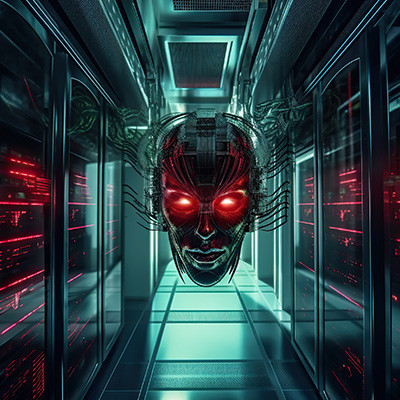Cambium Data Blog
By now, AI isn’t just a buzzword in the 2026 boardroom—it’s the plumbing. But as developers race to push the tech into uncharted territory, the line between "breakthrough" and "breakdown" has become razor-thin. Today’s story is a cautionary tale about the leap from AI that talks to AI that acts, and how a single developer’s viral hit accidentally birthed a multi-million dollar heist and a digital cult.
The concept of a four-day workweek has long been debated, with strong anecdotal evidence supporting its effectiveness. The nation of Iceland provides one of the most compelling real-world examples.
Their journey began small in 2015 with initial trials involving about 2,500 workers; or, just under one percent of the population. These efforts have dramatically expanded, however, and today, nearly 90 percent of Icelandic workers have moved to a reduced work schedule, typically around 36 hours a week for full-time workers. What’s more, this shift has occurred without any negative impact on the economy. In fact, Iceland's society has seen significant benefits.
The Chief Information Officer of a business has the primary responsibility of managing the organization’s technology, which in turn places a lot of stress on them as an individual. They implement strategies to help the business thrive, but they also take the blame for when those initiatives fail. They might even be tempted to say “yes” to requests even when they might feel like they should say “no.” Let’s look at three technologies that CIOs are implementing for businesses.
With the papal conclave—the sequestered selection of a new pope by the Catholic Church’s College of Cardinals—beginning today, it seemed timely to consider how this centuries-old tradition has maintained its incredibly high level of secrecy and security over the years.
After all, there may be a few lessons and insights we can glean from their process and apply them to your business and its privacy.
Artificial intelligence has taken the world by storm, and you can now find it in just about all areas of life. Businesses in particular have a lot to gain from AI, yet many people still don’t know what it is, what it actually does, and, most importantly, how to use it well. Today, we’re tackling AI literacy and how you can use it to your benefit.
Tax season is coming, at least in the United States, and while it’s not the most exciting time of the year, it’s important nonetheless. Hackers know this, too, so you might get some unsolicited text messages or emails claiming to be the Internal Revenue Service. Today, we want to highlight the importance of awareness this tax season, and what you should anticipate over the next couple of months.
Following the heinous attacks that caused the Twin Towers to fall in New York on September 11, 2001, you heard about terrorism every single day for years. The “War on Terror” waged for over a decade toppled multiple governments and set a precedent that terrorists will be relentlessly pursued. While there have been a few massive terrorist events that have shocked the world in the subsequent years after 9/11, cyberspace has become one of the biggest battlegrounds. Today, we’ll briefly discuss the rise of cyberterrorism.
It’s fun to be critical of social media, but there’s no denying the massive influence it has on individuals, societies, businesses, and even the political landscape. Since social media plays such a big part in so many areas of your digital life, it’s important to know how it all factors into your personal rights and privacy. Today, we want to examine the idea of who really owns what you post on social media and who is in control of your accounts… because it’s definitely not you.
Blockchain technology is in the zeitgeist, but few people know how to explain it to someone else. They might think that it’s something to do with Bitcoin, to which they would be right, but it’s more broad than that. Today, we want to explore what the blockchain is and some of the ways businesses are using it.
Subscription services are all over the place these days, and we’re willing to bet that you have a couple of lingering subscriptions that you’ve either forgotten about or don’t care enough about to cancel immediately. The Federal Trade Commission, however, seems to care enough to take action with a ruling that makes canceling subscriptions easier. Businesses won’t be able to add more hurdles to their subscription cancellations, which is good for end users.
You may remember the hubbub and hullabaloo that ensued when Josh Allen, a digital artist, won first place at the 2022 Colorado State Fair’s Fine Arts Competition in the Digital Arts/Digitally Manipulated Photography contest with an image—"Théâtre D'opéra Spatial"—that he had created using AI. Allen continues defending his work, now butting heads with the Copyright Office.
Problems with cybersecurity can really sink your business. Unfortunately, more opportunists are out there today looking to profit off of business’ lack of vigilance. One example of this are large-scale scam operations that have been running in Southeast Asia, and they are now spreading to other parts of the world. These scams, called "pig butchering" scams, have caused major harm, with around $75 billion lost worldwide in 2023.
Sextortion scams are far from glamorous. These attacks involve a scammer claiming to have compromising photos or videos of their target engaged in explicit activities—often suggesting this footage was captured through their online behavior. The scammer then threatens to release this material unless a ransom is paid.
The state of Internet security is always a trip. There are scams literally everywhere and there are better minds than ours that want to solve the myriad of problems that users run into online. One such platform is the secure communications software Telegram founded by Pavel Durov. In this attempt to revolutionize the instant messaging space, he’s found himself in some pretty hot water. Let’s dive right in.
On Friday, July 18th, a global update—codenamed “Falcon”—to cybersecurity company CrowdStrike’s software triggered events that brought major infrastructures and societal needs to their knees… despite affecting less than one percent of all Windows systems.
Now that about one and a half weeks have passed, let’s check in and see what happened, both leading up to this event and in the days since.
We know that living in a constant state of fear of being scammed is not ideal, but it’s the unfortunate reality of living in today’s technologically advanced world. The good news is that it’s never too late to learn how to avoid them! Let’s discuss how you can be more aware of the challenges of scams not only in a business setting, but in everyday life.
Many individuals are concerned about the future of AI, including the White House, which encouraged companies like Amazon, Anthropic, Google, Inflection, Meta, Microsoft, and OpenAI to commit to helping with the management of artificial intelligence. Other companies, including Adobe, Cohere, IBM, Nvidia, Palantir, Salesforce, Scale AI, and Stability, have joined in this pledge to maintain “the development of safe, secure, and trustworthy AI,” according to the White House.




















